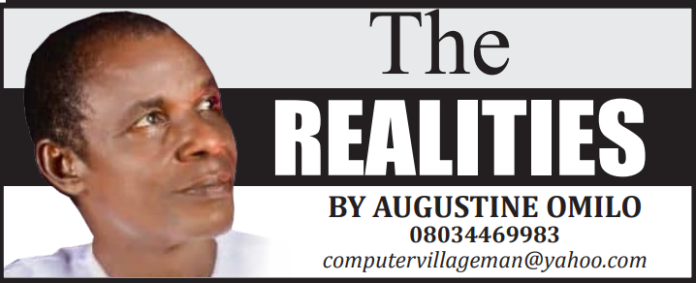Though a marketing term, branding has become so generally embraced by people of all works life that it has now become a tool in the hands of politicians who are eager to offer leadership services to their nations at different levels. The oxford English language dictionary defines it as a marketing process by which a company, product, or service acquires a distinctive identity in the minds of consumers – becoming associated with particular values, life styles, and meanings.
Branding makes ‘political products’ (including politicians and political parties) appeal positively or otherwise to the psyche of the voting public. It involves manifesto preparation and presentation, conduct of political actors, media aides to leaders and so on.
The All Progressives Congress, APC that formerly functioned as the major opposition party was reported to have hired the services of the U.S. political consultancy, AKPD Message & Media, based in Chicago to work for it during the campaigns for 2015 elections. Indeed, APC won, not only the election of 2015, but also those of 2019 and 2023.
While APC was using branding and rebranding to position itself as a party to beat in elections, others were busy with issues relating to age, health and other aspects of politicking that are neither here nor there. Buhari, whose ideology only appealed to a section of Northern Nigeria suddenly, became the toast of both the North and South western Nigeria. Their earlier recorded feat was improved upon in 2023, thereby making the party acceptable by the people of Imo and Ebonyi states of the south East.
Praiseworthy as political branding is around the world, it has remained deceitful in Nigeria to a very large extent. Politicians and their parties are often branded intentionally to mislead the gullible Nigerians. They use tools such as empty promises, tribal and regional bigotry, monetary inducement, thugery, intimidation amongst others to sway the people to their sides. And these are responsible for the failure to offer good governance in the country. The present ruling party, APC came “dressed” like a warrior well prepared to put an end to the menace of insecurity, corruption and poor handling of the economy. But after more than nine years in office, the citizens are yet to feel the kind of positive dividends of democracy envisaged in 2015.
Inspiring branded politicians in the country are usually not difficult to notice. Their leadership patterns are unique. They maintain exceptional dress codes. Their language in public discuss remain indelible in the hearts of their first-hand audiences. One of the signs of approval of these noble leaders are the ease with which Nigerians embrace their ways of dressing and even name their children after them (leaders). Such past leaders in the include Dr. Nnamdi Azikiwe, Chief Obafemi Awolowo, Dr. K.O Mbadiwe, Chief M.K. O Abiola, Alhaji Shehu Shagari, Mallam Aminu Kano, Chief Jim Nwobodo, to mention but a few.
Of all these, late Chief Obafemi Awolowo remains the most legendary star. He was frank to a fault, especially with regards to what he believed in, irrespective of what men’s opinions about such thoughts he considered noble. In his campaigns for the 1979 presidential elections, he was reputed to have promised Nigerians that he would ban the use of second hand clothes in the country.
His reason was that it was dehumanizing for man to buy and put on clothes already worn and rejected by fellow human beings. He equally condemned the importation of stock fish, popularly known as kpanla or okporoko. He did not stop there. Awo as he was also known assured Nigerians that he would put a stop to the consumption of cow skin (kpomo) which he considered as one of the nation’s exportable items of international trade (hides and skin) that has no nutritional value, just like okproko. Of course, those whose businesses thrived on these items did not vote for him despite his other laudable four cardinal programs of free education, health care, housing and employment.
Till date, “Awo cap” is still in the market. Many Nigerians who admire the politician hardly do without it. These perhaps include the governor-elect of Edo state who had the cap on his head on the day he received his Certificate of Return from the Independent Electoral Commission, INEC in Abuja recently.
Awo’s legacies are numerous. In the old mid-western region, apart from naming children after the chief, there is a plant that bears his name till today. He was the first politician to use helicopter for his campaigns. As a way of matching his brand with words, Awolowo introduced Television to the whole of Africa. The free education he brought to western Nigeria in 1955 and in the states under the control of his Unity Party of Nigeria, UPN in 1979 ensured the continued high level of literacy and professionalism in these areas. As a principled man, he resigned from the government of Gowon in 1970, using inconsistencies in government promises to the people as his reason. He continued with his legal practice and became the second Senior Advocate of Nigeria, SAN in 1975.
Without mincing words, if Nigerian politicians and their political parties brand themselves with sincerity of heart, the people will be able to choose their leaders appropriately. The country will equally begin to grow her democracy along ideological lines. And this will lead the people into a state of democratic stability.


